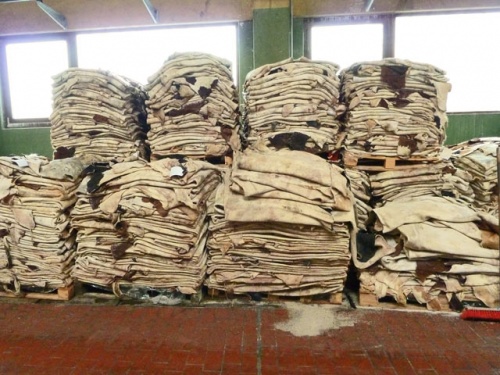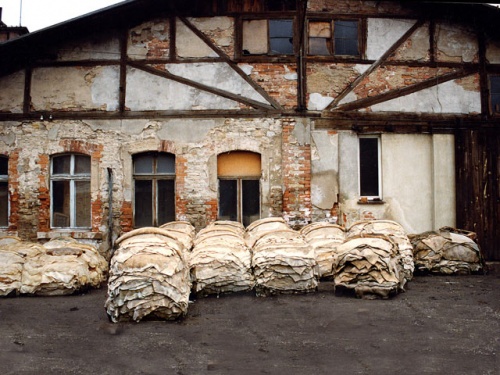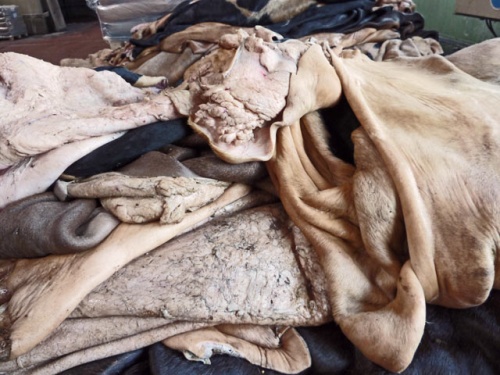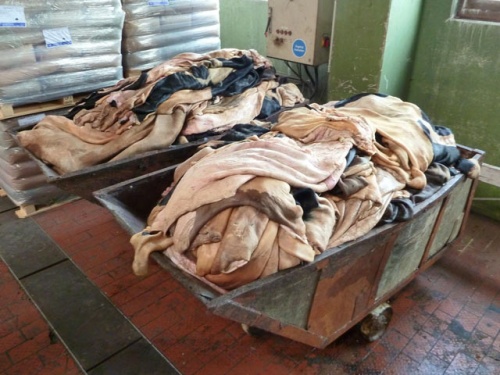Rawhide
Tanners work with rawhide obtained from the animal. This is irreversibly tanned to make leather as a finished product of the tannery. For bovine leather, roughly 200 to 300 kilos of leather are produced from 1,000 kilos of raw skin. Only the skin for leather production can be used. The removed layers are waste from the original raw skin.
For skin to be further processed into leather, it must be as damage-free as possible. Damages caused by illness or injury, by incorrect handling, in the slaughterhouse during cutting, or preservation, reduce the value for the tanner.
When removing the skin, the cutting must be carried out in such a way that the tanner can produce a hide as large as possible. Associations of the Leather Industry try to teach the slaughterers the optimal cutting of cattle through posters. But there is often a mistake in cutting, because the cutting of the skin is mainly performed by unskilled hands. Meanwhile this process is increasingly being carried out by "withdrawal machines", which make it possible to subtract the skin as a whole from the animal. The results are then practically cut and defect-free hides.
Rawhides are sold by dealers. At the trading and auction sites, the raw material is then assembled into lots of similar hides and skins. Rawhides for furniture leather are calculated in Germany per kilo. According to a tannery for high-quality furniture leather, the price per kilo of raw skin amounted to approx. 3 € in 2015.
Salted rawhide.
Cooled rawhide.
Video about the leather production
The leather production in a modern tannery.
Additional information
- Hide - Skin
- Fleshing
- Rawhide dealers - Skin collectors
- Leather industry
- Leather cutting waste
- Natural markings on leather
- Leather defects
- Leather damages
- Measures and weights












 a kotori web solution
a kotori web solution